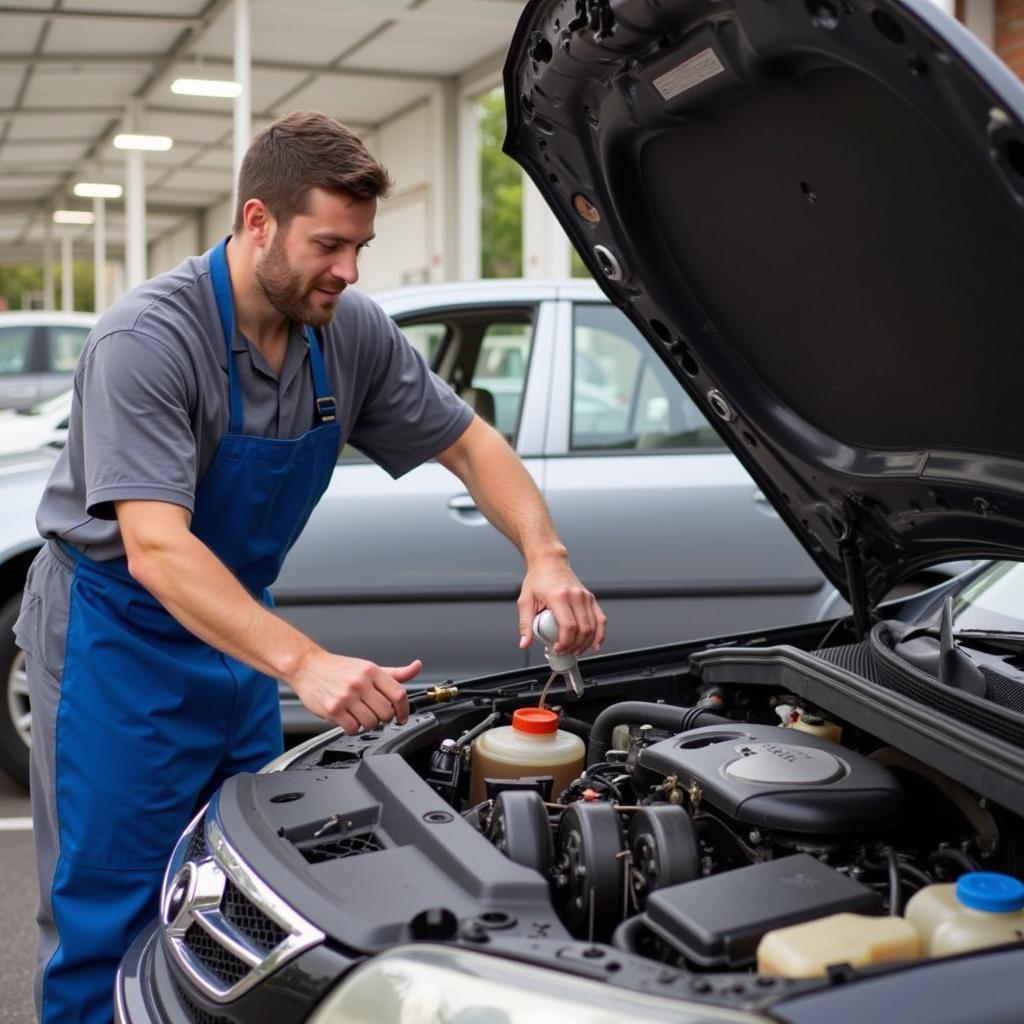Knowing how much you’ll spend on car maintenance is essential for budgeting, especially when planning long trips or deciding if a used car is a good deal. The “Maintenance Cost Of Cars Per Mile” varies greatly depending on factors like car age, make, model, driving habits, and location. This article will help you understand the key aspects influencing car maintenance costs and provide tips for managing them effectively.
How to Estimate Car Maintenance Costs Per Mile
It’s difficult to pin down an exact cost per mile for car maintenance because it varies so much. But, you can make a good estimate by considering these factors:
1. Car Age and Mileage
The older your car is and the higher the mileage, the more likely it is to require maintenance. Regular servicing and repairs become more frequent as components wear out.
2. Car Make and Model
Some car models are known for requiring more frequent maintenance or having higher repair costs than others. Researching specific car models and their maintenance history can give you an idea of potential costs.
3. Driving Habits
Your driving habits significantly impact maintenance costs. Aggressive driving, frequent short trips, and heavy towing all put more stress on your car and increase wear and tear.
4. Location and Climate
Location and climate conditions can also influence maintenance costs. For instance, cars in areas with extreme temperatures or salty roads may need more frequent repairs.
5. Regular Maintenance
Following a regular maintenance schedule for your car can help prevent major breakdowns and keep your costs down.
What Factors Influence Car Maintenance Costs?
Many factors contribute to your overall car maintenance cost per mile, but here are some of the most significant:
- Oil Changes: One of the most frequent and necessary services.
- Tire Rotations and Replacements: Tires wear down over time, and replacing them can be expensive.
- Brake Pads and Rotors: These components wear out due to friction and require regular replacement.
- Filters: Air, oil, and fuel filters need regular replacement to maintain engine performance.
- Fluids: Checking and topping off fluids like coolant, brake fluid, and power steering fluid is essential.
- Scheduled Services: Many manufacturers recommend specific services based on mileage, such as spark plug replacements, timing belt inspections, and transmission fluid changes.
- Unexpected Repairs: These can range from minor issues like a flat tire to major breakdowns requiring expensive repairs.
How to Minimize Your Car Maintenance Costs
Here are some actionable tips to help reduce your car maintenance costs:
- Follow Your Car’s Maintenance Schedule: Stick to your car manufacturer’s recommended maintenance schedule. This can help prevent costly breakdowns by catching issues early.
- Drive Conservatively: Avoid aggressive driving and frequent hard braking. This can extend the lifespan of your brakes, tires, and other components.
- Regular Inspections: Regularly check your car’s fluids, tire pressure, and other key components. Catching small issues early can save you from bigger problems later.
- Maintain Your Car Regularly: Have your car serviced by a reputable mechanic at regular intervals.
- Shop Around for Parts and Labor: Get quotes from multiple mechanics and parts suppliers before making any repairs.
- Consider DIY Repairs: If you’re comfortable with car maintenance, consider doing some repairs yourself. This can save you money on labor costs.
How to Estimate Your Car Maintenance Costs
Here’s a quick approach to get a sense of your car’s maintenance cost per mile:
- Start with an average. A general rule of thumb is to budget $0.10 to $0.25 per mile for maintenance.
- Factor in your car’s age and mileage. If your car is older or has high mileage, you should budget more.
- Consider your driving habits. If you drive aggressively or frequently take long trips, you should budget more.
- Account for unexpected repairs. It’s a good idea to set aside some money for unexpected repairs.
- Track your expenses. Keep track of all your car maintenance costs so you can get a better idea of what you’re actually spending.
“It’s important to remember that car maintenance is an investment. By taking care of your car now, you can save money in the long run.” – John Miller, Automotive Expert
Frequently Asked Questions (FAQs)
Q: What is the average maintenance cost for a car?
A: The average maintenance cost for a car can vary widely, depending on factors like age, make, model, driving habits, and location. Generally, you can expect to spend anywhere from $0.10 to $0.25 per mile on maintenance.
Q: How often should I get an oil change?
A: Most modern cars recommend an oil change every 5,000 to 7,500 miles. However, it’s important to consult your car’s owner’s manual for specific recommendations.
Q: What are some common car maintenance services?
A: Common car maintenance services include oil changes, tire rotations, brake inspections and repairs, air filter replacements, coolant checks, and fluid top-offs.
Q: How can I find a good mechanic?
A: You can ask for recommendations from friends or family, read online reviews, and check for certifications like ASE (Automotive Service Excellence).
Q: What are some signs that my car needs maintenance?
A: Some common signs that your car needs maintenance include strange noises, warning lights on your dashboard, reduced fuel efficiency, and leaks.
If you’re unsure about any aspect of car maintenance, don’t hesitate to reach out to a reputable mechanic for professional advice.
AutoTipPro is here to assist you with all your car maintenance needs. Contact us at +1 (641) 206-8880 or visit our office at 500 N St Mary’s St, San Antonio, TX 78205, United States. We’re dedicated to keeping your vehicle running smoothly and maximizing its lifespan.





Leave a Reply